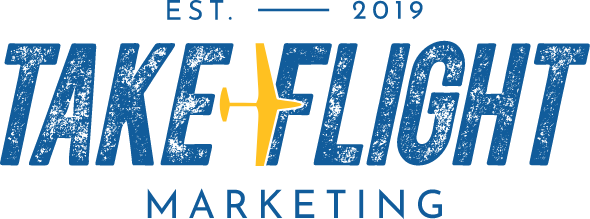How AI Is Reshaping Search and Why Agencies Need to Adapt Now
Sometimes I just sit back and think about how wild this moment is. Everything about how people search, learn, and buy is shifting right under our feet, and honestly, most agencies are still marketing like it’s 2021. Meanwhile, AI, especially tools like ChatGPT, is quietly becoming the new gateway to discovery. Not just another shiny tool to “play with,” but a genuine search engine in its own right. And if agencies don’t catch up, they’re going to miss the next massive wave of customer intent.
Here’s what that actually means for us as marketers, performance folks, and agency owners: the path to being found is changing. People aren’t always going to Google first. They’re going to conversational AI. They’re asking questions the way they think — not the way SEO experts taught them to type.
And if we’re smart, we’ll meet them right there.
The Shift: ChatGPT is Becoming a Search Engine
Search used to be transactional. You typed a phrase, crossed your fingers, and hoped for links that weren’t too spammy. But with ChatGPT (and other AI systems) becoming more conversational, more accurate, and more integrated into daily workflows, people are choosing the path of least resistance: ask the question, get the answer.
No ads.
No scrolling.
No noise.
And here’s the part too many agencies underestimate: people are now relying on AI to make recommendations. “What agency specializes in beauty performance marketing?” “Who’s the best partner for scaling paid social?” “Which firms offer fractional CMO services for early-stage brands?”
If you’re not training AI to recognize who you are, what you do, and who you serve, you simply won’t show up.
Why this Matters for Agencies
We’ve spent years chasing algorithms — Meta, Google, TikTok, the whole gauntlet. But AI changes the game because it's not just indexing keywords; it's synthesizing context.
If an AI system knows your niche, your expertise, your wins, your POV, and your digital footprint, it can surface your agency as the right answer. If it doesn’t? You’re invisible.
This is where agencies need to pivot their content strategy:
1. AI needs clarity, not cleverness.
ChatGPT responds best to content that’s intentional, structured, and specific. If your website is vague (“We help brands grow!”) or overly clever (“We’re the creative agency for the bold and the brave!”), AI can’t categorize you.
Be explicit about:
Your services
Your industries
Your pricing or engagement style
Your case study outcomes
Your process
The more concrete, the better.
2. You need to seed the internet with signals AI can learn from.
Think of AI like a big blender pulling from:
Your website
Your blog
Your LinkedIn posts
Industry interviews
Case studies
Client testimonials
Public content about your team
If you don’t create enough content, AI has nothing to train on. If you do? AI becomes your sales funnel.
3. AI search loves narrative authority.
Agencies that publish insights consistently — not just SEO fluff — start showing up in AI answers. ChatGPT is smart enough to tell the difference between real expertise and filler.
If you write thoughtful content about:
CTV strategy
Paid social shifts
Attribution accuracy
Creative testing frameworks
Industry trends
…it begins recommending you.
That’s free visibility. Free demand. Free trust-building.
How Agencies Can Position Themselves to be “Found” Through AI
Here’s the practical playbook:
1. Audit your digital presence for clarity.
Would AI understand exactly what you do within 30 seconds of “reading” your site or socials?
If not, simplify everything.
2. Build AI-friendly content.
Publish content that directly answers the kinds of questions your ideal clients will ask ChatGPT.
Examples:
“What should a monthly paid media budget be for beauty brands under $5M?”
“What’s the best structure for creative testing on Meta?”
“Do I need CTV if I’m already running Meta and TikTok ads?”
Write posts, blogs, and guides that answer these — with depth.
3. Use structured case studies.
AI prioritizes data-rich storytelling.
Include:
Problem
Strategy
Execution
Data points
Results
Why it mattered
Make it easy for AI to understand why you’re credible.
4. Name your niche. Out loud. Everywhere.
If you’re the go-to agency for:
beauty brands
wellness brands
CPG under $20M
startups needing fractional leadership
Say it. AI learns the category you “own.”
5. Use consistent language across platforms.
If your site says one thing and your socials say another, AI gets confused.
When the language is aligned, AI recognizes you as a reliable source.
6. Leverage ChatGPT as a testing ground.
Ask it:
“Which agencies specialize in XYZ field?”
“Who’s the best agency for [your niche]?”
“What should I look for in a [your services] agency?”
Then study the gaps.
Fix them.
Resurface with better content.
Here’s the punchline: AI is a referral engine.
The same way word-of-mouth built agencies for decades, AI is now becoming the biggest “word-of-algorithm” system. It remembers. It synthesizes. It recommends.
If you want to be visible in the next era of search and discovery, you can’t wait for Google to catch up. You have to optimize for conversational discovery — and your future clients are already asking questions you should be the answer to.
This is the moment to claim your lane.
